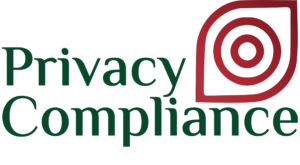VPN – Protector of internet privacy?
There is no doubt that the Internet plays a vital role in the modern world. The everyday usage of the Internet by common people is unavoidable. From mundane tasks to scientific research, the Internet is everywhere. However, in essence, the Internet is still a platform used for sharing and disseminating information. For various reasons, certain organizations and entities, both public and private would want to control such flows of information by censoring content or blocking access to certain websites. Therefore, the cyber landscapes of different countries or regions could look completely different. Combating this information disunity and providing information privacy are the main purposes of the VPN (Virtual Private Network). So what is VPN? How does it work? What are the pros and cons? How is it regulated? The answers to such questions shall be detailed below.
What is VPN?
Virtual private network, or VPN, is an encrypted connection over an unsecured network (such as the Internet) from a device to a network. The encryption allows the connection to be secured and data to be safely transmitted. It prevents unauthorized entities from accessing the data flow by employing a process called “tunneling” which lets data pass through a network without letting the network see the data. The technology is widely used in the corporate environment to make secure data transfers[1].
What are the benefits of using VPN?
There are many benefits to using VPN while browsing public networks (such as the Internet) with the most common being the following[2]:
Privacy: Data flowing through VPNs is encrypted. This means that the data would be secure and cannot be viewed by third-parties without an encryption key. This is especially beneficial when you are accessing public networks.
Accessing secure networks remotely: For most companies, privacy is vital and sensitive information must be protected. Using public networks to transfer such information is risky and prone to leaks. As such, companies require secure connection to transfer information outside of the internal servers. For this, companies frequently use VPNs in order to access their servers remotely since VPNs provide secure connections and protect the data from being intercepted.
Masking IP address: VPNs allow users to hide their actual IP addresses/geographical locations. Since the data is rerouted through the VPN server, your original IP will not show up, rather, it would be the IP of the VPN servers as they will be acting as your proxies.
Accessing geo-restricted content: This is one of the main reasons behind the recent boom of VPN. Governments around the world understand the potentials and risks of the Internet and have implemented regulations to control the flow of information in their countries. Some countries outright block access to certain websites, others restrict access or ask the search engines to delist results from searches. In order to access these contents, it is necessary to use VPNs in order to change the IP address to make it seems as though you are accessing the contents from a location that is not restricted. For example: the right to be delisted only applies to the EU version of Google, if you are inside the EU and you want to see the all search results with no delisting, you can use a VPN to reroute the signal to make it seems as though you are searching from the US where the right to be delisted does not apply.
In all, the usage of VPNs allows you to browse, search, transfer, access information securely and prevents third-parties from intercepting your data. In this day and age where information is becoming more and more valuable and personal data privacy is becoming more important, VPNs play a crucial role.
How is VPN regulated?
In the majority of countries in the world, VPN is perfectly legal and safe to use. However, some countries that wish to tightly control the flow of information of their citizens, have cracked down on the use of VPN by blocking service provider sites or enacting some form of ban on VPN usage. It is expected that the trend of regulating the usage of VPN will grow even more in the future[3]. For countries that actively take a stance against the use of VPN, we can examine the most prominent examples below.
Russia: In 2017, Russia passed a law that blocks certain websites to “prevent the spread of extremist materials and ideas” which also includes VPN websites, though it does not block VPN traffic. Those caught accessing such sites could be subject to fines of 300,000 RUB, providers on the other hand could be fined 700,000 RUB. In march 2019, the Russian government demanded VPN providers to allow access to the servers located in the country. This has prompted some providers to shut down their Russian servers, such as NordVPN[4].
China: In 2017, the Ministry of Industry and Information Technology issued a notice on Cleaning up and Standardising the Internet Network Access Service Market which stipulates that without the approval of the ministry, no enterprise shall set up or lease dedicated lines or other channels (VPN included) to operate cross-border business. Even when international dedicated lines are available, providers must establish users’ profile and clarify that such lines shall only be used for internal office work and shall not be used to connect to foreign or domestic data centers or business platforms to operate telecommunications business. In short, only VPNs provided by providers that are authorized by the government are legal in China[5].
However, no matter how much some countries want to ban VPN completely, they cannot since foreign enterprises rely on VPN to transfer their data across borders securely. Without VPN, it would be very difficult for such enterprises to conduct business in that country. For that reason, VPN is never outright banned, only very tightly regulated.
In all, like it or not, VPN is here to stay. The usage of VPN and the revenue that comes with it will only increase in the future. There is no doubt that governments around the world will react to it one way or another and more regulations are sure to come.
PrivacyCompliance
[1] Cisco ‘What is a VPN? – Virtual Private Network’ (Cisco) <https://www.cisco.com/c/en/us/products/security/vpn-endpoint-security-clients/what-is-vpn.html> accessed 3 January 2023.
[2] Kaspersky, ‘What is VPN? How it works, Types of VPN’ (Kaspersky) <https://www.kaspersky.com/resource-center/definitions/what-is-a-vpn> accessed 3 January 2023.
[3] Aimee O’Driscoll ‘Where are VPNs legal and where are they banned?’ (Comparitech, 12 October 2022) <https://www.comparitech.com/vpn/where-are-vpns-legal-banned/> accessed 4 January 2023.
[4] ibid.
[5] Sharon Shi, William Shen ‘VPN compliance in China” (China Business Law Journal, 8 March 2021) <https://law.asia/vpn-compliance-china/> accessed 4 January 2023.

Certified in Cybersecurity – a starting point in cybersecurity
Certified in Cybersecurity – a starting point in cybersecurity The Certified in Cybersecurity (CC) is an entry-level certification offered by (ISC)², the organization behind industry-leading credentials like CISSP. Launched to address the growing demand for skilled cybersecurity professionals, the CC certification is designed for individuals starting their careers in cybersecurity, providing foundational knowledge and skills. […]
Learn more

CRISC – Globally Recognized Information Security Certification
CRISC – Globally Recognized Information Security Certification A Certified in Risk and Information Systems Control® (CRISC®) certification demonstrates IT risk management expertise. By taking a proactive approach, the holder can enhance the organization’s business resilience, deliver stakeholder value and optimize risk management across the enterprise. By being CRISC certified, the holder will be ready to […]
Learn more

CISA – World-renowned IT Auditing Certification
CISA – World-renowned IT Auditing Certification Certified Information Systems Auditor® (CISA®), world-renowned as the standard of achievement for auditing, monitoring, and assessing IT and business systems, also acknowledges the importance of emerging technologies. Achieving a CISA certification showcases expertise and asserts the holder’s ability to apply a risk-based approach to audit engagements. Addressing innovations like […]
Learn more